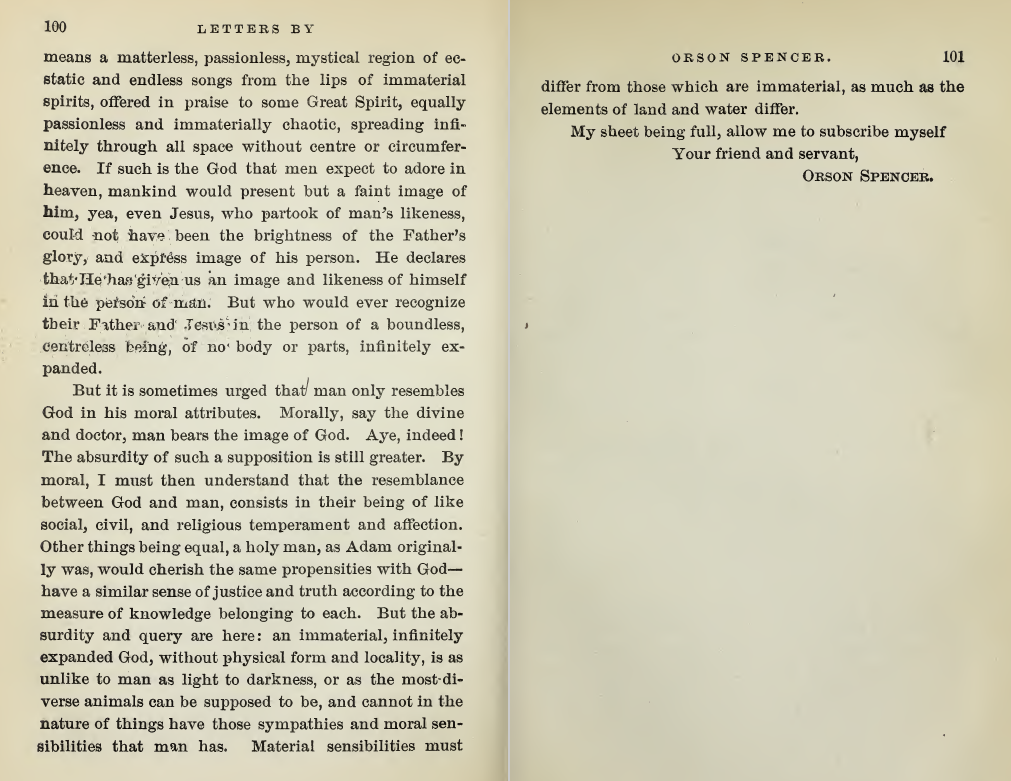Orson Spencer writes that Adam was originally a "holy man" and cherished the same propensities with God prior to the Fall; considers an immaterial God to be an "absurdity."
- Type
- Letter
- Source
- Orson Spencer LDS
- Hearsay
- DirectReprint
- Reference
Orson Spencer, "The True and Living God," Liverpool, September 13, 1847, in Orson Spencer, Letters Exhibiting the Prominent Doctrines of The Church of Jesus Christ of Latter-day Saints, 5th ed. (Salt Lake City: The Deseret News, 1874), 100-1
- Scribe/Publisher
- Deseret News
- Audience
- Reading Public
- Transcription
But it is sometimes urged that man only resembles God in his moral attributes. Morally, say the divine and doctor, man bears the image of God. Aye, indeed! The absurdity of such a supposition is still greater. By moral, I must then understand that the resemblance between God and man, consists in their being of like social, civil, and religious temperament and affection. Other things being equal, a holy man, as Adam originally was, would cherish the same propensities with God—have a similar sense of justice and truth according to the measure of knowledge belonging to each. But the absurdity and query are here; an immaterial, infinitely expanded God, without physical form and locality, is as unlike to man as light to darkness, or as the most diverse animals can be supposed to be, and cannot in the nature of things have those sympathies and moral sensibilities that man has. Material sensibilities must differ from those which are immaterial, as much as the elements of land and water differ.
- Citations in Mormonr Qnas
The B. H. Roberts Foundation is not owned by, operated by, or affiliated with the Church of Jesus Christ of Latter-day Saints.

